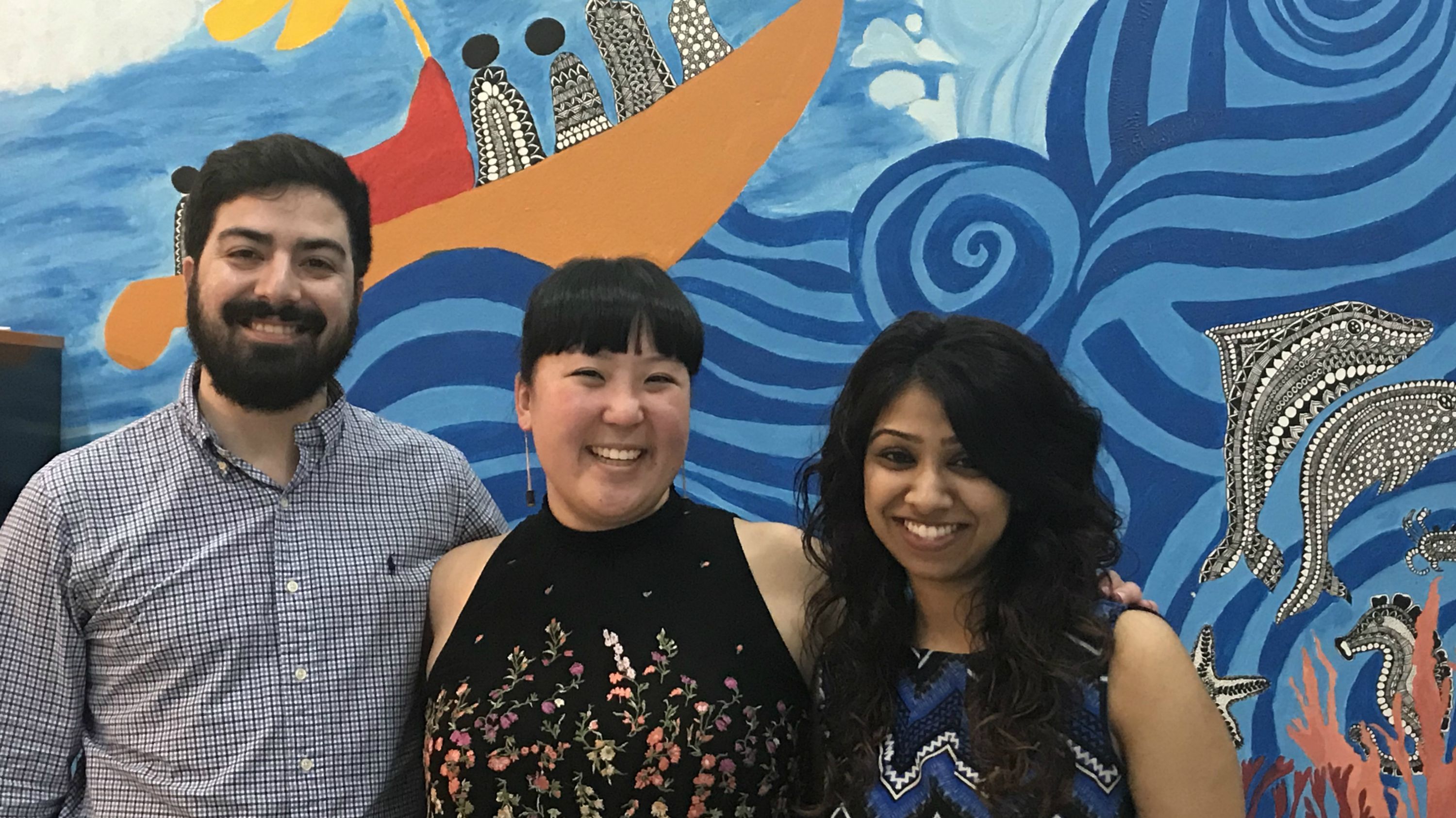Clinic Students Interview Refugees Over Spring Break
While many AUWCL students recently spent their spring breaks decompressing on beaches and ski slopes, an International Human Rights Law Clinic (IHRLC) student group took advantage of the free time to interview refugees in Thailand about human rights abuses in their home country.
Students Jeslin Panicker, Damir Siahkoohi, and Grace Yanagawa – under the supervision of IHRLC Practitioner-in-Residence Sherizaan Minwalla – worked with several refugee assistance organizations in Bangkok, where they spent five days collecting data and personal stories about why the refugees fled their home country.
In total, the students interviewed 26 refugees. The refugees’ home country is not being disclosed in an effort to avoid drawing unwanted attention to the interviewees, their families, or the individuals and organizations assisting them.
Interviewing individuals about their traumatic experiences is never an easy task, but the IHRLC trains students to balance professionalism with empathy, compassion, and cultural competence when interviewing trauma survivors.
“This invaluable experience propelled me to grow professionally as an advocate and attorney,” Panicker said. “Interacting with victims of trauma has shown me the importance of counseling as a legal skill – compassion and empathy coming together with fact investigation and interviewing.”
The students conducted their interviews as part of the legwork for a report that the IHRLC is creating for Freedom Now, an organization whose mission is “to free prisoners of conscience through focused legal, political and public relations advocacy efforts.” Freedom Now will use the report to advocate with the United Nations to draw attention to human rights violations in the refugees’ home country in hopes of influencing the relevant officials to free imprisoned dissidents.
The students said the refugees’ ability to stand up to their government, even in the face of systemic oppression, inspired them greatly.
“The people we interviewed were amazing. Their stories of perseverance and fighting for their rights, to the point they could no longer live in their own country, were truly remarkable,” Siahkoohi said.
Yanagawa added, “I feel so honored that these individuals, who have experienced such depths of human depravity, have allowed me to bear witness to their testimony.”
The IHRLC organizes students into group “pods” for purposes of issue-based advocacy projects like the Freedom Now report-in-progress. These projects enable students to see how policy issues at the macro level influence the lives of the individual clients they represent. By working with organizational clients, students have a chance to build their networks of professional contacts and produce tangible products that the organizations can use to fight for groups of people who would otherwise remain voiceless.
Professor Minwalla said she is proud of everything her students accomplished in such a short period, including preparing for the trip by researching domestic and international laws, talking with experts, drafting interview questions, and obtaining approval from the university’s Institutional Review Board to ensure that their research design was ethical.
“I was impressed with the empathy and compassion they showed towards the refugees during the interviews, and for their perseverance in conducting such intense interviews over five days,” Minwalla said. “I enjoyed working with the team on this project to document and advocate for human rights, and we all found the experience to be incredibly rewarding.”
